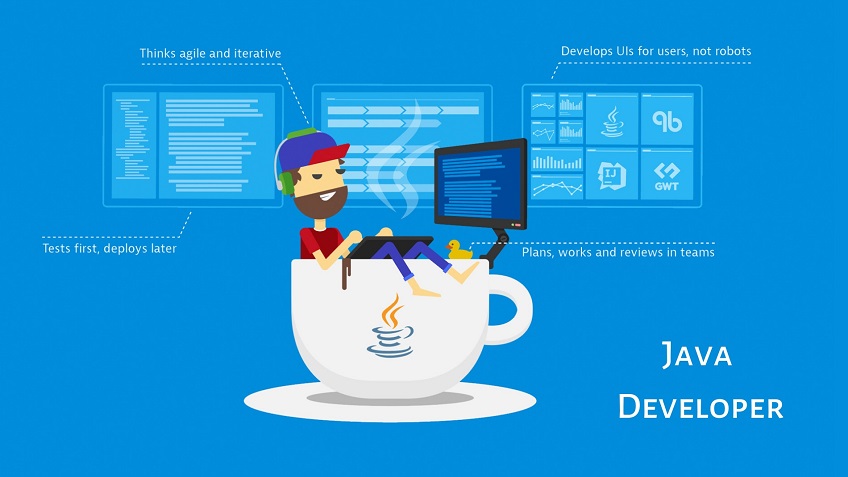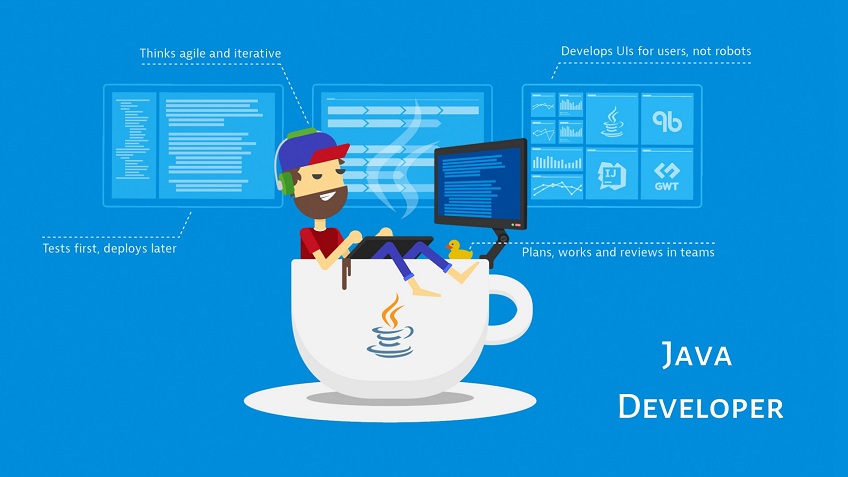

In an era where businesses are predominantly reliant on software solutions, choosing the right technology to drive your digital strategy can be a game-changer. One such technology that has stood the test of time and continues to offer remarkable solutions for businesses worldwide is Java. As a business, if you plan to leverage this powerful programming language, it might be worthwhile to hire a Java developer.
Why Choose Java for Business Development?
Platform Independence
Java’s platform independence extends beyond the operating system. Also, with the help of Java Virtual Machine (JVM), businesses can run Java applications on any hardware or software platform. This simplifies deployment and reduces potential roadblocks, which is why many businesses choose to hire Java developersto create universally compatible applications.
Scalability and Performance
Java’s multithreading capability allows businesses to handle multiple tasks simultaneously within a single program, improving performance. It supports high scalability, which is critical for businesses that are planning to grow or deal with large amounts of data. It can accommodate an increase in workload without impacting the system’s performance.
Security
Java provides multiple layers of security, including encryption, authentication, and access control, reducing the chances of data breaches. The security API in Java supports various cryptography services, such as secure logins, digital signatures, and creating cipher keys. Businesses should hire Java developers to ensure their applications are secure and protect sensitive data.
Rich API and Robust Open-Source Ecosystem
Java offers a rich set of APIs for activities such as networking, I/O, utilities, XML parsing, database connection, and more. Also, Java has a robust open-source ecosystem with tools and libraries that help in faster and more efficient development.
When Should Businesses Hire Java Developers?
Knowing when to bring in a Java expert can significantly influence the success of your project.
Here are a few scenarios:
Building Custom Enterprise Solutions
Java is highly recognized for developing large-scale enterprise applications. This is attributed to its inherent scalability, robustness, and multithreading capabilities.
If your business is aiming to build a custom solution capable of handling complex tasks, extensive data, and high user traffic, it’s time to hire a Java developer. The developer can architect the solution in a manner that optimizes performance and ensures easy maintenance, leading to long-term success.
Mobile Application Development
The prominence of Java in Android app development is simply undeniable. Given that a vast number of standard Java libraries are incorporated within the Android SDK, and a majority of Android APIs take cues from Java APIs, it’s fair to say that if your business is gearing towards unveiling an Android or a cross-platform app with a primary Android focus, bringing a Java developer onboard is not just a suggestion but a requirement. Their expertise can help craft efficient, user-friendly, and secure mobile apps that, in turn, may boost user retention rates.
Web Application Development
Java brings to the table a plethora of sturdy libraries and frameworks, such as Spring, Struts, and Hibernate, which ease the process of web application development. Thus, if your enterprise is contemplating creating a dynamic, scalable web application, it’s high time you employ a Java developer.
They can harness the power of Java to create a web app that is not only tailored to meet your specific needs. Also, but is also in line with the most current trends, offering an effortless user experience.
System Integration Projects
One of Java’s major highlights is its seamless integration capabilities with various systems. If your business operations involve a variety of software systems and you’re on the lookout for an efficient way to streamline these operations, consider hiring a Java developer.
They can skillfully employ Java-based tools and frameworks such as Apache Camel or Spring Integration to connect your systems, ensuring an unhindered data flow amongst them. This could augment operational efficiency, support informed decision-making, and provide a better view of your business performance.
Data Analysis Tools
In today’s business landscape, data is the new gold. If your business is tasked with handling massive amounts of data and needs a bespoke solution for data analysis or reporting, a Java developer can come in handy.
Java offers a host of libraries and frameworks, including Apache Hadoop, JFreeChart, and Weka, dedicated to data analysis, data visualization, and machine learning. By employing a Java developer, you can create potent tools that draw valuable insights from your data, hence shaping your business strategy.
IoT Projects
The Internet of Things (IoT) has become increasingly prominent in today’s world, and Java’s platform-independent nature makes it a popular choice for IoT development.
If your business is venturing into IoT-related projects, hiring a Java developer is advisable. Java’s security features, device compatibility, and network-centric programming provide the necessary ingredients for successful IoT applications.
Hiring the Right Java Developer
Choosing the right Java developer can have a profound impact on your project’s success. Here’s what to look out for:
Core Java Skills
The developer should be proficient in core Java skills such as object-oriented programming, exception handling, generics, and Java 8’s new features like lambda expressions and streams.
Knowledge of Frameworks and Libraries
Having knowledge of Java’s frameworks and libraries is crucial. The developer should have experience with frameworks such as Spring, Hibernate, or Struts, which are commonly used in Java development.
Understanding of JVM and Memory Management
An understanding of JVM and memory management in Java can have a significant impact on application performance. This understanding equips developers to produce efficient code that’s quicker and more memory-friendly.
Familiarity with Front-end Technologies
A Java developer’s knowledge should extend to front-end technologies such as HTML, CSS, JavaScript, and libraries such as jQuery, especially if you’re hiring for full-stack development.
Experience with Tools and Practices
Experience with version control tools like Git, build tools like Maven or Gradle, and adherence to good practices like unit testing and code reviews can all contribute to a seamless development process.
Problem-Solving Skills
Beyond technical skills, a proficient Java developer should possess stellar problem-solving abilities, as coding often involves overcoming numerous challenges.
Conclusion
Java continues to evolve, regularly incorporating new features to cater to the modern development landscape. Its flexibility and reliability make it a top choice for developers and businesses. With Java’s promising future and the myriad of advantages it offers, businesses embracing this technology stand to gain a competitive edge.







 Download Our Brochure
Download Our Brochure